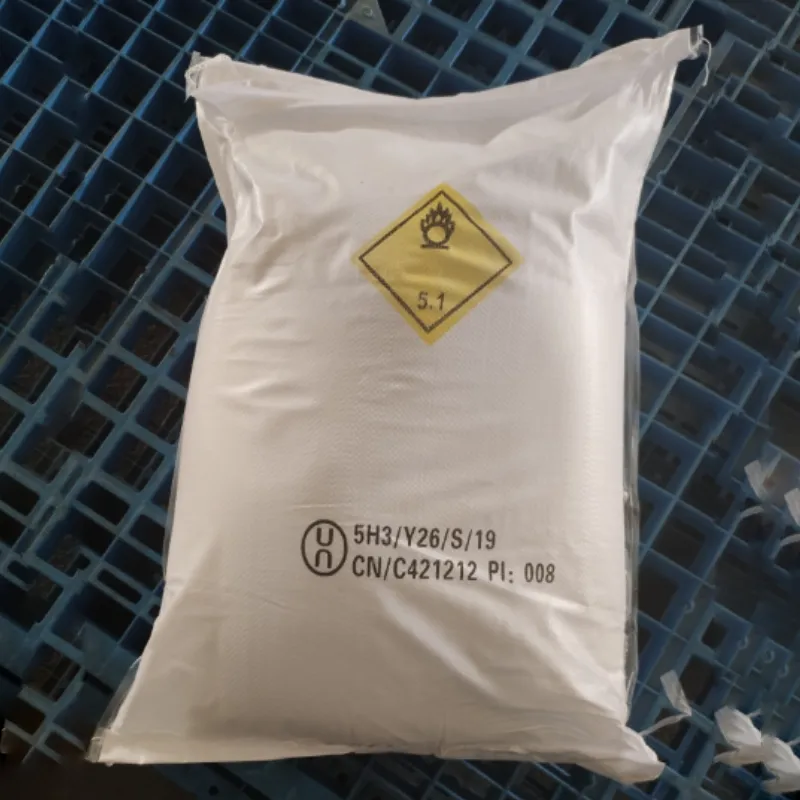
sodium benzoate
Sodium Benzoate A Multifaceted Preservative
Sodium benzoate, a sodium salt of benzoic acid, is a widely used preservative in various food products, cosmetics, and pharmaceuticals. Its effectiveness in inhibiting the growth of mold, yeast, and some bacteria makes it a valuable compound in the food industry. The chemical formula for sodium benzoate is C7H5NaO2, and it appears as a white crystalline powder that is soluble in water.
Historical Background
Sodium benzoate has been utilized as a preservative for centuries. Its origins can be traced back to the use of benzoic acid in ancient cultures, where it was derived from the gum of the benzoin tree. The transition from benzoic acid to sodium benzoate was pivotal, as the latter is more soluble and stable in various products. In 1900, sodium benzoate was approved for use as a food preservative in the United States, and it has remained a staple in food preservation practices since.
Mechanism of Action
The preservative properties of sodium benzoate arise from its ability to disrupt the microbial cell function. Once inside a microorganism, sodium benzoate dissociates into benzoic acid, which can penetrate the cell membrane. The acidic environment within the cell interferes with its metabolism, effectively halting the growth and reproduction of the microorganism. Sodium benzoate is most effective at an acidic pH (around 2.5 to 4.0), making it ideal for use in acidic foods like fruit juices, soft drinks, and salad dressings.
Applications in Food Industry
Sodium benzoate is commonly found in products such as pickles, sauces, and carbonated beverages
. Its primary role is to extend shelf life, ensuring that food remains safe and palatable for consumers over an extended period. Additionally, its low cost and effectiveness have made it a favorite among food manufacturers seeking to balance preservation with quality. As consumer demand for longer-lasting, fresh-tasting products increases, sodium benzoate's role in the industry is expected to remain significant.sodium benzoate

Safety and Regulations
The safety of sodium benzoate has been a topic of discussion among researchers and health professionals. Regulatory agencies, including the U.S. Food and Drug Administration (FDA) and the European Food Safety Authority (EFSA), have deemed sodium benzoate safe for consumption at specified levels. The acceptable daily intake (ADI) is established to ensure that consumers do not exceed safe amounts through regular dietary consumption.
Despite its approval for use, some concerns have been raised regarding the formation of benzene, a known carcinogen, when sodium benzoate is exposed to high temperatures or when mixed with ascorbic acid (vitamin C) in certain conditions. This has led to further investigations into its safety, with regulatory bodies continuing to monitor and assess any risks associated with its use.
Environmental Impact
While sodium benzoate is generally considered safe for humans, its environmental impact is another area of concern. As food and beverage manufacturers seek to optimize their production processes, the discharge of sodium benzoate into wastewater systems raises questions about ecological consequences. Studies have shown that high concentrations of sodium benzoate can affect microbial communities in aquatic environments, thus necessitating environmentally responsible practices in its use and disposal.
Conclusion
Sodium benzoate continues to be a pivotal player in the food, cosmetics, and pharmaceutical industries due to its effective preservative qualities. While its benefits are clear, ongoing research and regulatory assessments are crucial to address safety concerns and environmental implications. Consumers are becoming increasingly aware of what goes into their food products, leading to a demand for transparency and natural alternatives. As the landscape of food preservation evolves, sodium benzoate will undoubtedly remain a significant topic of discussion regarding its utility and safety in the quest for safe, convenient, and long-lasting products.
-
Why Glacial Acetic Acid Food Grade Is Essential in FlavorNewsMay.26,2025
-
Surging Export Growth of Food Additives in ChinaNewsMay.26,2025
-
How Ammonium Nitrate Fertilizer Boosts Crop YieldsNewsMay.26,2025
-
How 1,2,3-Benzotriazole Shields Plastics from UV DegradationNewsMay.26,2025
-
Cyanide in Gold Mining: Protecting People and the PlanetNewsMay.26,2025
-
Aluminum Hydroxide in Modern Sunscreen FormulationsNewsMay.26,2025
-
Understanding Synthetic Rubber OptionsNewsApr.27,2025
Hebei Tenger Chemical Technology Co., Ltd. focuses on the chemical industry and is committed to the export service of chemical raw materials.
-

view more DiethanolisopropanolamineIn the ever-growing field of chemical solutions, diethanolisopropanolamine (DEIPA) stands out as a versatile and important compound. Due to its unique chemical structure and properties, DEIPA is of interest to various industries including construction, personal care, and agriculture. -

view more TriisopropanolamineTriisopropanolamine (TIPA) alkanol amine substance, is a kind of alcohol amine compound with amino and alcohol hydroxyl, and because of its molecules contains both amino and hydroxyl. -

view more Tetramethyl Thiuram DisulfideTetramethyl thiuram disulfide, also known as TMTD, is a white to light-yellow powder with a distinct sulfur-like odor. It is soluble in organic solvents such as benzene, acetone, and ethyl acetate, making it highly versatile for use in different formulations. TMTD is known for its excellent vulcanization acceleration properties, which makes it a key ingredient in the production of rubber products. Additionally, it acts as an effective fungicide and bactericide, making it valuable in agricultural applications. Its high purity and stability ensure consistent performance, making it a preferred choice for manufacturers across various industries.











